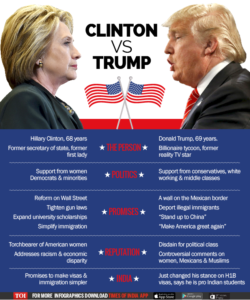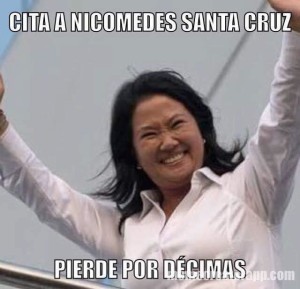Categoría: Otras cosas raras
What does latest appeal mean for ‘Serial’s’ Adnan Syed? Three possible outcomes
BY RUTH TAM AND ERIC KRUPKE
February 11, 2015 at 2:36 PM EST
In 2003, three years into his lifelong prison sentence, Adnan Syed directly appealed the trial court that convicted him for the murder of his ex-girlfriend Hae Min Lee in 1999. It didn’t work. After ten years in prison, Syed, who was 18 at the time of the murder, filed for “post-conviction relief,” this time alleging that his trial attorney Cristina Gutierrez gave him “ineffective counsel.” That didn’t work either.
But Syed, who became a sensation after the hit podcast “Serial” investigated his case, appealed that second decision and in June, the Maryland Court of Appeals will hear arguments that Gutierrez gave Syed “ineffective counsel.” This time, Syed has a statement from woman named Asia McClain who claims Syed was with her during the time of the murder. Back when Syed was on trial, his lawyer Cristina Gutierrez never reached out to McClain to testify.
Will the third attempt to clear his name work? To help answer your questions on the case, PBS NewsHour spoke to C. Justin Brown, Syed’s attorney, Rabia Chaudry, lawyer and advocate for Syed, and Andrew Levy, adjunct professor at University of Maryland School of Law and partner at Brown, Goldstein & Levy, LLP.
How is this different from Adnan Syed’s other appeals?
A new written statement from a woman named Asia McClain gives Adnan Syed an alibi. Because his lawyer never contacted McClain during his original trial, Syed hopes to use McClain’s statement to prove that he had “ineffective counsel” and get a new trial.
“The court can now look at all of Asia’s documents, including the new statements, and then decide,” Rabia Chaudry told NewsHour.
McClain gave Syed an alibi? Why didn’t she speak up before?
There are conflicting reports on why McClain didn’t step forward until now. In a recent interview with the Blaze, McClain claimed that Syed’s prosecutor discouraged her from testifying. Syed’s prosecutor Kevin Urick denies McClain’s claims.
Now McClain has written a second affidavit to reflect this, which is the crux of Syed’s appeal in June.
What happens between now and the trial?
Syed will file a brief by March 16. In this brief, he will make the argument that he had “ineffective counsel” and is entitled to a new case. The state will have a month to respond and they must make their case against Syed’s claim by April 16. Syed will have a chance to respond to the state’s brief. This last “reply brief” isn’t all that important, said lawyer Andrew Levy, but “conscientious lawyers are obligated to file them because you don’t want to miss an opportunity to make your case.”
What are some possible outcomes? Could Syed be released from prison?
Not quite. According to Levy, there are three possible outcomes:
- The panel of judges could deny the appeal. They could say to Syed, “You had a fair trial” or “Your lawyer was fine.” Or even if his lawyer did screw up, it didn’t hurt you in court.
- The judges could decide Syed’s appeal has merit and order a new trial. If that happens, the state could appeal as well and the Maryland Court of Appeals (the state’s supreme court) would decide the case afresh.
- If the judges are somewhere in between, Syed’s lawyer also requested that the case be remanded to the trial court for further fact finding with McClain as a new witness. According to Levy, this move is different from a new trial and is rather unusual. “A new trial focuses on if he’s guilty or not guilty. A remand would delay the final resolution on the merit of his appeal.”
What’s the “best case scenario” for Syed?
“The first thing we’re asking the court to do is grant Adnan a new trial,” said Syed’s attorney C. Justin Brown. “We want him to get a new trial and a fair trial. That’s the focus of our efforts right now.”
Chaudry, who has advocated for Syed for decades agrees.
“I don’t really have any fear of going to a new trial,” she said. “I don’t think [the state has] anything to win. There’s just no way, there’s nothing left for them to prosecute him on.”
How can Syed achieve this in court?
To win on the claim of “ineffective counsel,” Syed must prove two things, said Levy: that his original lawyer “screwed up” and that he was hurt by her failure to do what she should have done.
What about all the DNA evidence and the cell phone records?
You must be a true “Serial” fan. Syed is arguing that he didn’t have a proper defense and his best evidence for that is that his lawyer didn’t contact McClain. Extra details like the saliva left on a brandy bottle at the crime scene won’t be helpful unless Syed wins another trial.
In the meantime, The Innocence Project is looking into this additional evidence.
Has all the attention on the case been good for Syed?
Chaudry says yes.
“Without the attention, it would have been the end of the road,” she said. “The post-conviction appeal only happened because of the attention. Jay gave a new interview, Asia came back, The Innocence Project got involved. None of this would have happened.”
In: PBS
Final Presidential Debate USA 2016
Máximo tribunal de Venezuela avala a Maduro a presentar presupuesto 2017 sin control legislativo
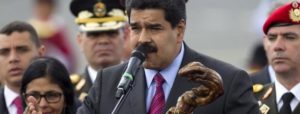
El parlamentario opositor José Guerra, también presidente de la subcomisión presupuestaria, aseguró que si el TSJ aprueba la partida para el próximo ejercicio, será nula. En: http://www.americaeconomia.com/sites/default/files/imagecache/cover-ae/maduro20151_3.jpeg
El máximo tribunal de Venezuela avaló la madrugada del miércoles al presidente Nicolás Maduro a presentar el proyecto de presupuesto 2017 de la nación sin pasar por la Asamblea Nacional, dominada por la oposición, rompiendo con una norma constitucional.
Días atrás, el propio Maduro había solicitado al Tribunal Supremo de Justicia (TSJ) que analizara la medida bajo el argumento de que el parlamento se encuentra en “desacato”, por lo que todas sus actuaciones son nulas hasta que no separe a tres diputados acusados de comprar votos para ganar curules.
“El TSJ declaró que el presupuesto nacional deberá ser presentado por el Presidente de la República ante la Sala Constitucional, bajo la forma normativa de decreto que tendrá rango y fuerza de ley”, dice el comunicado del tribunal que acompañó la sentencia.
El máximo órgano del sistema judicial de Venezuela justificó su decisión “frente a la imperiosa necesidad de cumplir una fase del proceso de formación jurídica del presupuesto nacional (…) y con el propósito de mantener el funcionamiento del Estado, la garantía de los derechos fundamentales y el orden constitucional”.
Además, la decisión prohíbe a la Asamblea Nacional la “reconducción presupuestaria”, es decir, que no podrá alterar las partidas presupuestarias, ni obstruir, ni incidir en el presupuesto aprobado.
El parlamentario opositor José Guerra, también presidente de la subcomisión presupuestaria, aseguró que si el TSJ aprueba la partida para el próximo ejercicio, será nula.
“Si el Gobierno aprueba el presupuesto él mismo, ese presupuesto será nulo. Quien realice un gasto o lo autorice será sancionado”, opinó Guerra en su cuenta de Twitter @JoseAGuerra.
Desde que la oposición ganó el control de la Asamblea Nacional, el TSJ ha torpedeado la gran mayoría de sus leyes, incluso antes de ser aprobadas.
Economistas y analistas prestan cada vez menos atención al presupuesto venezolano, ya que las partidas extrapresupuestarias terminan superándolo con creces.
El país petrolero enfrenta una aguda crisis económica con la inflación más alta del mundo, recesión y escasez de bienes básicos, que Maduro asegura se deben a una “guerra económica” de la oposición que busca desbancarlo.
Sus adversarios rechazan las acusaciones y dicen que las tribulaciones económicas son el corolario de más de tres lustros de socialismo, por lo que buscan un referéndum para revocar el mandato del jefe de Estado, sucesor del fallecido Hugo Chávez.
Puede revisar además: Maduro aprobará presupuesto 2017 por decreto de Ley este viernes
Cómo fue la huida y por qué vinieron los nazis a Argentina
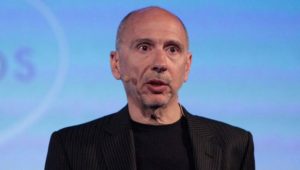
Imagen en: http://i1.mdzol.com/files/image/598/598155/5557d47d1409b_798_451!.jpg?s=2c7010dfba37c46c7225eb26b17162fd&d=1457816114
El corresponsal de “The Guardian” y autor de “The Real Odessa”, Uki Goñi, detalló cómo fue la huida de criminales nazis a Argentina.
por Conte, Montiveros y Bustos
18 de Mayo de 2015 | 09:06
-¿Cómo es para un argentino escribir en un diario inglés con lo que significa Malvinas?
-A veces se pone complicado, pero The Guardian es un diario particular: es el diario que sacó a la luz todos los cables de Wikileaks y que participó en develar el espionaje norteamericano sobre las comunicaciones que dio a conocer Edward Snowden. Y sobre el tema Malvinas, es un medio que simpatiza con la posición argentina. De hecho, he escrito varios artículos de opinión diciendo que hay que tener en cuenta el reclamo argentino de negociar. El diario tiene un enfoque muy abierto y hace que todo sea más fácil.
-¿El diario reclama temas de la región o el periodista propone?
-Es una mezcla. Uno propone y a veces ellos te piden. No hay una fórmula estándar. Lo que interesa más de la Argentina son los temas políticos, dada la gran efervescencia que se produce en Argentina sobre algunas cuestiones. Con la muerte de (Alberto) Nisman, desde el colapso económico de 2001 que no había tantos artículos escritos sobre Argentina.
-Recientemente, usted escribió un artículo titulado Argentina suicida la verdad.
-New York Times me pidió un artículo de opinión sobre el caso Nisman. Pero como uno ha visto tantos suicidios dudosos, principalmente el del hermano de Eva Duarte, Juan Duarte, escribí ese artículo. También está el caso de Héctor Febres, quien manejaba la maternidad en la ESMA y a mitad de su juicio apareció muerto en su celda (2007). Era un caso que llevaba justamente la mujer de Nisman, la jueza (Sandra) Arroyo Salgado. Para ella no fue suicidio.
-¿Hitler vino a Argentina?
-No. Me encantaría que Hitler se hubiese fugado a Argentina porque estaríamos todos trabajando sin parar, escribiendo sobre el tema. Pero Hitler se suicidó en el búnker al final de la guerra. Hay infinidad de testigos que dicen eso. Los americanos, los ingleses y Stalin lo investigaron. Stalin se llevó gente que estaba en el búnker a la Unión Soviética, los tuvieron presos durante años, los interrogaron, y nunca salió una pista que dijera lo contrario al suicidio. Incluso, los rusos desenterraron el cuerpo y recuperaron la mandíbula de Hitler. Trajeron al dentista de él y dijo que la dentadura era de Hitler. En aquellos años, antes del ADN, se identificaban los cuerpos por las dentaduras. Incluso, los soviéticos consiguieron los papeles del dentista que comprobaron la identidad. Todo lo demás es fantasía. Lo que hay son cuentos.
-Esta semana tuvo difusión mundial el hallazgo de un supuesto refugio nazi en la selva misionera.
-Yo me he pasado 10 años de mi vida investigando a fondo este tema (la presencia de jerarcas nazis en Argentina) y todo lo que hallé es mucho más serio que todas estas pavadas. Lo de Misiones es otra pavada. Son ruinas jesuitas de aquella época (década del 40). Una persona encontró monedas alemanas de aquellos años y dijeron que era un refugio nazi, pero tienen que tener en cuenta que en Misiones hay una gran presencia de descendientes alemanes. Es tan sexi la nota, que da la vuelta al mundo porque ningún editor puede resistirse a publicarla.
-¿Argentina demora en declarar la guerra a Alemania por la influencia de jerarcas nazis sobre el Gobierno?
-No hubo influencia de jerarcas nazis en Argentina. Cuando ves los interrogatorios sobre Argentina que hicieron Estados Unidos e Inglaterra, Walter Schellenberg (general de Brigada de las SS) dice nosotros veíamos en Argentina un gobierno que tenía una mentalidad similar a la nuestra. Estaba hablando del Gobierno del GOU (Grupo de Oficiales Unidos). Y era así. En Argentina había una gran simpatía por el fascismo y los nacionalistas católicos argentinos buscaban la forma de compatibilizar su admiración por el nazismo con el hecho de que el nazismo era anticatólico. En ese punto, se reflejaron más bien en el fascismo belga, francés o croatas. Lo que hubo acá fue una gran simpatía por el nazismo. Quien viajaba constantemente a Berlín a admirar aquello era el general Juan Pistarini (vicepresidente de Farrell). Iba a comprar armas para el Ejército. Tenía un problema porque el embajador (Eduardo) Labougle era antinazi y daba la orden de no alzar el brazo de saludo nazi, pero Pistarini no se podía contener. Era un nazi recontra conocido.
-¿Por qué vinieron los nazis a Argentina?
-Argentina se diferencia del resto de los países recibiendo nazis porque el Gobierno envía misiones a Europa a buscar esta gente. Llegan en gran cantidad criminales nazis. Una de las razones era los grandes lazos que había, ya que Alemania era el principal inversor. Otra era la gran cantidad de germano-argentinos que habían participado en el Gobierno nazi. El ministro de Agricultura de Hitler, Walther Darré nació y creció en Argentina, iba a un colegio en Belgrano y se fue a los 11 años a Alemania. Fue uno de los principales teóricos del racismo nazi. En 1936, en las olimpiadas de Berlín saludó a la delegación argentina. Tras la guerra, fue condenado en Nüremberg y murió en la cárcel. Otro argentino de gran influencia fue Carlos Fuldner. Era hijo de alemanes, nació acá y se fue de adolescente a Alemania, donde ingresó a las SS y al final de la guerra fue enviado a Madrid y a Argentina para organizar el escape.
-¿Qué le dicen los peronistas de sus investigaciones?
-He podido ver a la Argentina con una cierta distancia. Yo no veo diferencia entre peronismo y antiperonismo. Configuran dos equipos en un mismo partido. Ninguno de los dos contribuye a la verdad. Los peronistas niegan mi trabajo y los antiperonistas, en vez de interpretarlo objetivamente, lo usan para atacar a los peronistas. Ninguno sirve. Es más, casi que prefiero a los peronistas. Yo llegué acá y empecé a trabajar como periodistas durante la dictadura en el Buenos Aires Herald, el único que contaba lo que pasaba en aquella época. EL nazismo no es que me interese particularmente, pero dije “acá hay un punto ciego que nadie quiere ver”. Aunque mi trabajo fue bien recibido, en el mundo académico ningún historiador ni universidad me llamó para ver ningún documento. Junté 26 mil páginas de documentos que quedaron en el Museo del Holocausto de Washington.
-En el medio, la música.
-Yo llegué acá y me metí en el periodismo, y cuando llegó 1981, donde la dictadura se veía que estaba terminando, dije quiero hacer música. Yo tenía una banda en Irlanda. Y acá formé Los helicópteros. Fue una reacción a lo horrible que fue la dictadura, decir “yo no voy a dejar que los militares me quiten la alegría”. Fue una banda pionera con Los twist y Virus.
Producción: Franco Pereira para Tormenta de Ideas, programa que se transmite los sábados por FM 105.5, MDZ Radio.
En: mdzol.com
Risas y Salsa – La banda del Choclito
Hilarantes historias de una banda de delincuentes con José Centurión como “Mapache”, Pedro Yuffra como “Ojitos Lindos” y Álvaro González como “Guayabera Sucia”, liderados por Justo Espinoza “Petipán”, el Choclito.
Joven es violada por sus amigos ¡Y se enteró 7 meses después de la peor manera
En: atv.pe
La venganza de Nicomedes Santa Cruz ….. ¬¬
Imagen en: https://scontent-atl3-1.xx.fbcdn.net/v/t1.0-9/13423837_10154337875033010_5680567707884440144_n.jpg?oh=1926e0aeeceb298fc8e1aa2a16fe358a&oe=57C99DD1
Peru’s Kuczynski beats Fujimori in near-final vote count
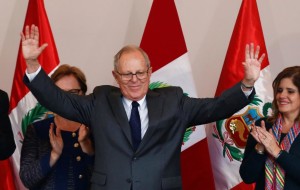
Peruvian presidential candidate Pedro Pablo Kuczynski, gives a speech to the press after Peru’s electoral office ONPE said that he won more votes than Keiko Fujimori in the country’s cliffhanger presidential election in his headquarters in Lima, Peru, June 9, 2016. REUTERS/Mariana Bazo
Former investment banker Pedro Pablo Kuczynski was on track to become Peru’s next president after a near-final vote tally gave him a slim lead in the tightest election in decades, although his populist rival Keiko Fujimori had yet to accept defeat.
Outgoing President Ollanta Humala and the leaders of Colombia, Chile, Argentina and Mexico congratulated Kuczynski after the latest official results on Thursday made it nearly impossible for Fujimori to catch up even though Kuczynski led by only 40,000 votes.
Kuczynski, a centrist economist known in Peru by his initials PPK, said he would wait for a complete count before claiming victory as thousands of disputed or unclear ballots remained uncounted.
Kuczynski promised to unify Peru after the divisive election that many saw as a referendum on the controversial legacy of Fujimori’s father, imprisoned former authoritarian leader Alberto Fujimori, in Peru’s fourth straight democratic election.
“We’re going to work for all Peruvians,” Kuczynski, 77, said in a news conference as supporters cheered him in the streets. “We take this virtual verdict with much modesty.”
The thin margin of victory and lack of allies in Congress would leave Kuczynski with one of the weakest mandates of any recent Peruvian president.
Either of the two business friendly candidates would face tough economic challenges, as slumping mineral prices have hit Peru, a global supplier of copper, zinc and gold.
To kickstart the economy, Kuczynski has proposed widening the fiscal deficit, lowering sales taxes, and investing in new infrastructure projects.
The latest count put Kuczynski ahead of 41-year-old Fujimori by just a quarter percentage point, according to electoral office ONPE. While the gap has fluctuated somewhat in recent days, Fujimori has trailed throughout the vote count.
Still, 0.2 percent of votes had not be tallied because they were unclear or dispute.
Members of Fujimori’s Popular Force party said electoral authorities should annul bundles of ballots because they had detected irregularities at polling stations.
“Nobody, absolutely nobody…can claim victory yet,” congressman Pedro Spadaro told reporters.
Some 140 bundles of ballots were still under review by authorities late on Thursday. However, with each bundle holding up to 300 votes, Fujimori would not be able catch up to Kuczynski even if all were in her favor.
Fujimori remained largely silent amid growing calls for her to congratulate Kuczynski.
“Acknowledging defeat would be best for democracy,” said Fernando Tuesta, a political analyst and the former head of Peru’s electoral board.
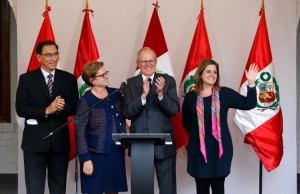
Peruvian presidential candidate Pedro Pablo Kuczynski, accompanied by his wife Nancy Lange and his running mates Martin Vizcarra (L) and Mercedes Araoz (R) gives a speech to the press after Peru’s electoral office ONPE said that he won more votes than Keiko Fujimori in the presidential election in his headquarters in Lima, Peru, June 9, 2016. REUTERS/Mariana Bazo
‘DEADLY THREAT TO DEMOCRACY’
Fujimori, who became her father’s first lady at 19 when he divorced her mother, had long been the favorite to win the election, thanks in part to the popularity of the family name in provinces where his government built schools and cracked down on the bloody Shining Path insurgency.
Alberto Fujimori is now serving a 25-year sentence for graft and human rights abuses committed during his 1990-2000 government.
On the campaign trail, she tried to distance herself from her father and criticized him for ordering the military to shutter Congress in 1992. But she never acknowledged he committed any crimes.
“I voted for PPK because he is a man with experience and does not have her past,” said Mario Palomino, 70.
But the broad support that Kuczynski enjoyed as many rallied behind him in the second-round race to defeat Fujimori might evaporate once he assumes power, making it hard for him to govern. His party will control just 18 congressional seats, behind Fujimori’s 73 and a leftist party’s 20.
Widely seen as honest, Kuczynski caught up with Fujimori in the final stretch of campaigning after he called her “a deadly threat to democracy” in a debate as she was stung by scandals involving her close advisers.
It would be Fujimori’s second consecutive narrow loss in a presidential run-off race and a further blow to the populist politics that have fallen out of favor in the region.
But her apparent defeat does not mean the Fujimori name is politically dead in Peru. Popular Force is the country’s best organized party and her younger brother, a lawmaker, has said he would run for president in the next election if she lost.
A former prime minister, Kuczynski dismissed Fujimori’s tough stance on crime, including promises to build prisons high in the Andes to isolate prisoners, as myopic and cruel.
Kuczynski has promised to ensure every town has piped water while cleaning up endemic corruption in the Andean country where one in five Peruvians still live in poverty despite nearly two decades of uninterrupted economic growth.
“Many Peruvians feel the train has already passed them by,” said Kuczynski. “I want all to get on board right away.”
(Additional reporting By Marco Aquino, Teresa Cespedes and Ursula Scollo; Editing by Tom Brown, Kieran Murray and Simon Cameron-Moore)
LIMA | BY MITRA TAJ AND CAROLINE STAUFFER
In: reuters

